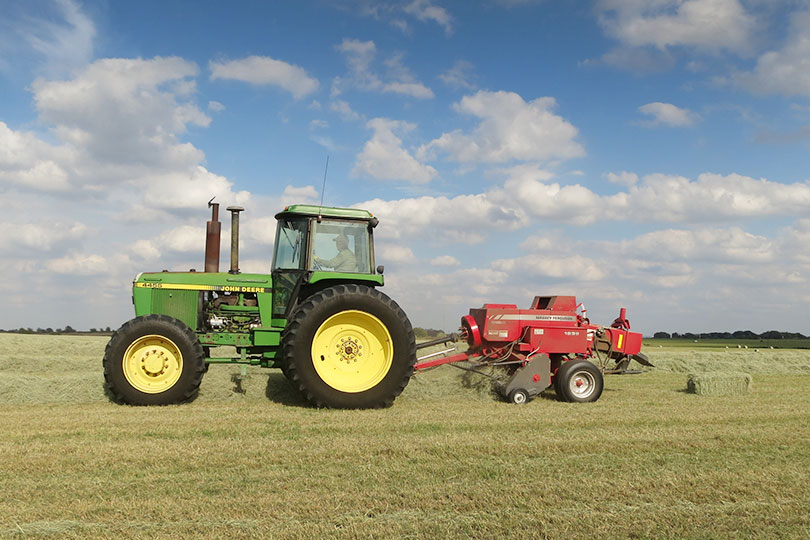By Jessica Domel
Multimedia Reporter
Almost one year after voters in Texas overwhelmingly supported the constitutional amendment protecting the right to farm, farmers and ranchers continue to report issues with municipalities infringing on their rights to carry out agricultural practices.
In an interim hearing hosted by the Texas House Committee on Agriculture and Livestock, Texas Farm Bureau (TFB) President Russell Boening said the grassroots farm organization has received numerous reports from members that certain cities are ignoring the statutory and constitutional protections afforded to them by the right-to-farm.
“Essentially, many of them (municipalities) are acting like nothing has changed,” Boening, a South Texas farmer, rancher and dairyman, said. “Many cities are still requiring a permit to have any livestock. Saginaw has not changed. Their zoning continues to completely prohibit any ag use of land. Flower Mound has not changed. Their zoning still prohibits livestock on open space land that’s zoned for residential use, but it is open space.”
Plano reportedly only allows use of barbed wire fencing in areas zoned light industrial.
Allen has a 50-foot buffer zone for vegetation height. Frisco’s is 100-feet.
The legislation restricted buffer zones to 10-feet.
The statute does not allow cities to regulate animal husbandry.
“Forney has not rescinded their ordinance banning the public mating of livestock,” Boening said. “Farmers and ranchers are still being told they must build enclosures for breeding purposes.”
Boening said TFB is not aware that any of these cities have produced the report required to prove with clear and convincing evidence a government requirement is needed to protect the public from imminent danger.
“It seems clear to us that these cities are forcing farmers and ranchers to take them to court to protect their rights,” Boening said. “We would recommend possible legislation allowing a farmer or rancher to recover their legal fees when they take them to court and win when they have to sue a city under chapter 251 of the ag code.”
James Lockridge, a farmer from Dallas, told the committee several cities he has farmed in ignore the right to farm and continue to write citations, tell him what crops he can and cannot grow and have even run him out of some areas.
“Literally every city in the metroplex that we farm in, they go after us whole hog. I mean, mowing our crops—a $2,000 fine per day. If we don’t mow the ordinance that they want, they take our livelihood away from us, and most of your farmers, they’re blue-collar farmers. They don’t have a lot of money to sue the cities,” Lockridge said. “If you sue a city, you might as well get ready to spend anywhere from a hundred thousand dollars to a quarter of a million dollars just right off the bat. They know they can beat the farming community just because they have the money and the power to outlast us.”
Last year, Lockridge took a second job because cities in the DFW metroplex mowed almost $200,000 of his crops to the ground for violating vegetation height ordinances or other local regulations.
Lockridge said he’s been fighting the battle now for about six years.
“They still continue to tell me what crops you can and cannot grow or what is or is not a crop. Not only have they done that, they’ve now reached out to the appraisal districts,” Lockridge said. “Collin County being one of them where the appraisal districts have now changed the law to abide by the city jurisdiction of a 150-foot setback. Now the appraisal district says, if you only farm 51%, you’re granted an ag (valuation) on the full remaining parcels with no questions asked. That’s not true. I’m living proof of that.”
Lockridge has 276 acres being farmed with 67 of those with trees or a street on them.
“The appraisal district has now said, no, we’re going to deny ag on the remaining parcel. You’re not going to get ag on that parcel of land, but yet the email says that I can have ag if I farm 51%,” Lockridge said. “We’re in litigation on that right now, fighting the city and the appraisal district on the right to farm.”
Lockridge said Farmers Branch told him to submit an invoice for the crops they mowed to the ground, but they’ve not yet paid. It’s been filed seven times now with no resolution.
“They’re not going to reimburse the farmers or the ranchers in any shape, form or fashion. It’s just a loophole that they know they can get by with because the state is not going to force that law,” Lockridge said.
He asked the lawmakers on the committee find a way to stop the overreach and ordinances that restrict every day agricultural practices like growing crops, storing and cutting hay and raising livestock.
The rapid growth in some areas of Texas, and an influx of people who may not have much experience in agriculture, was also discussed at the hearing.
The committee indicated they will host additional hearings in the future, hopefully with representatives from the mentioned municipalities in attendance.


Leave A Comment